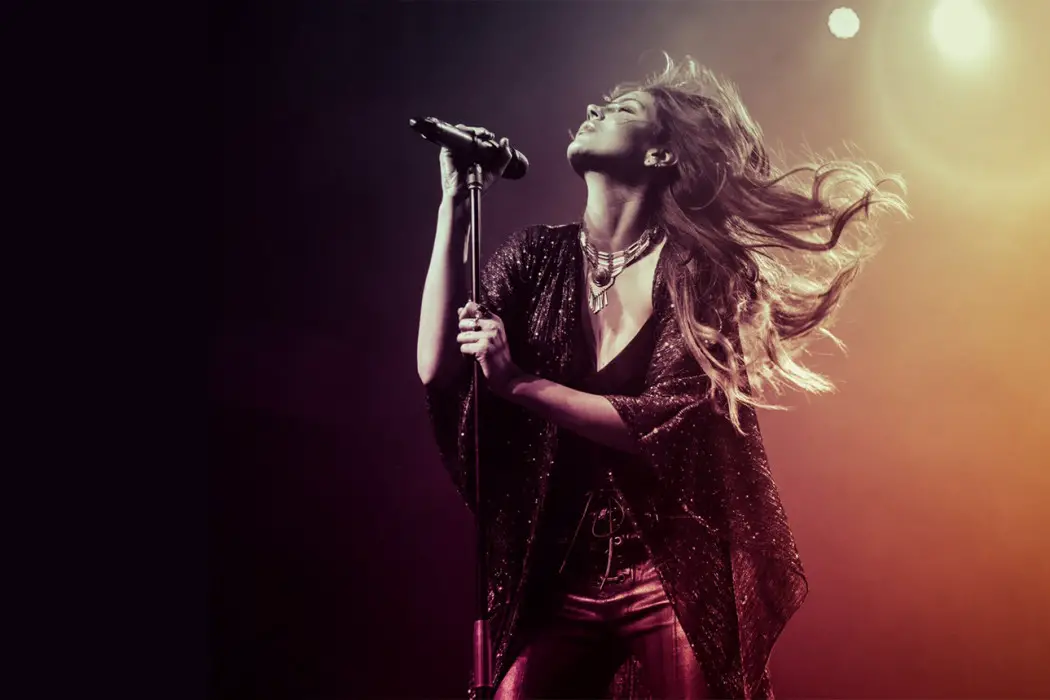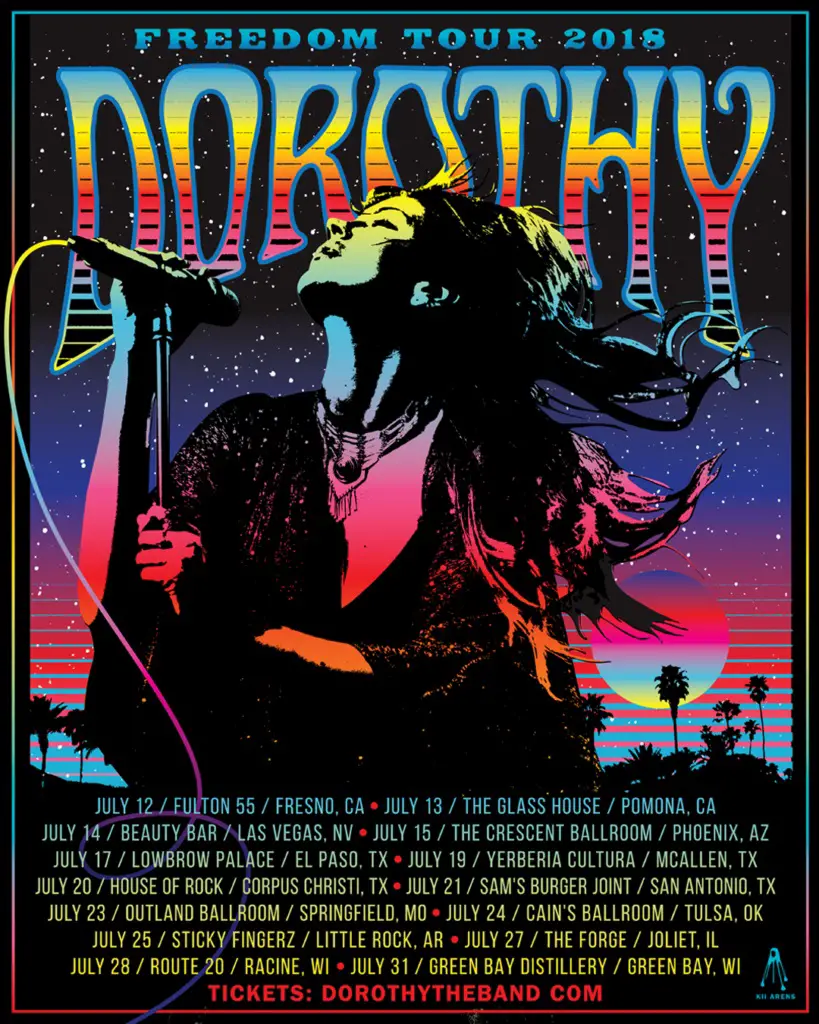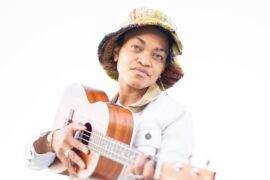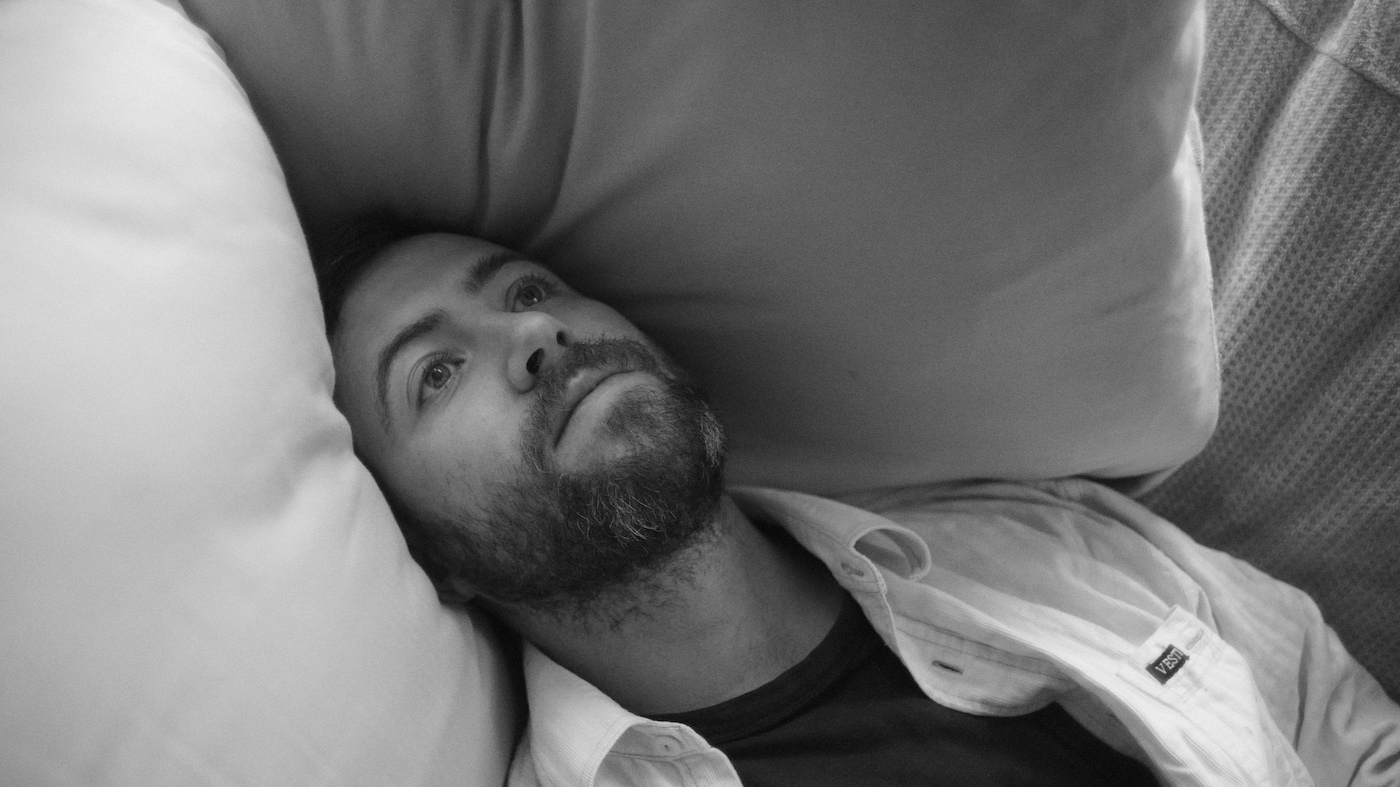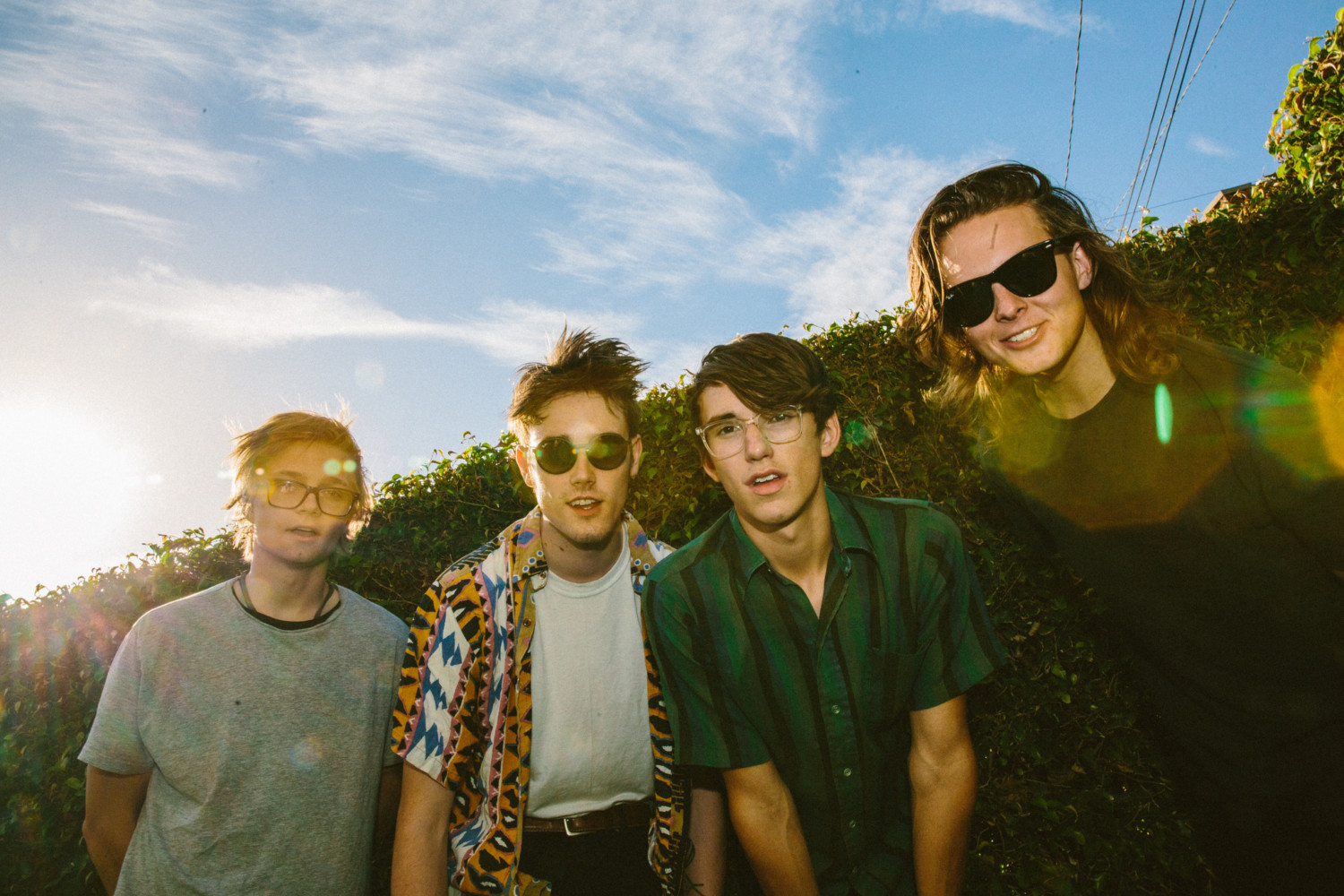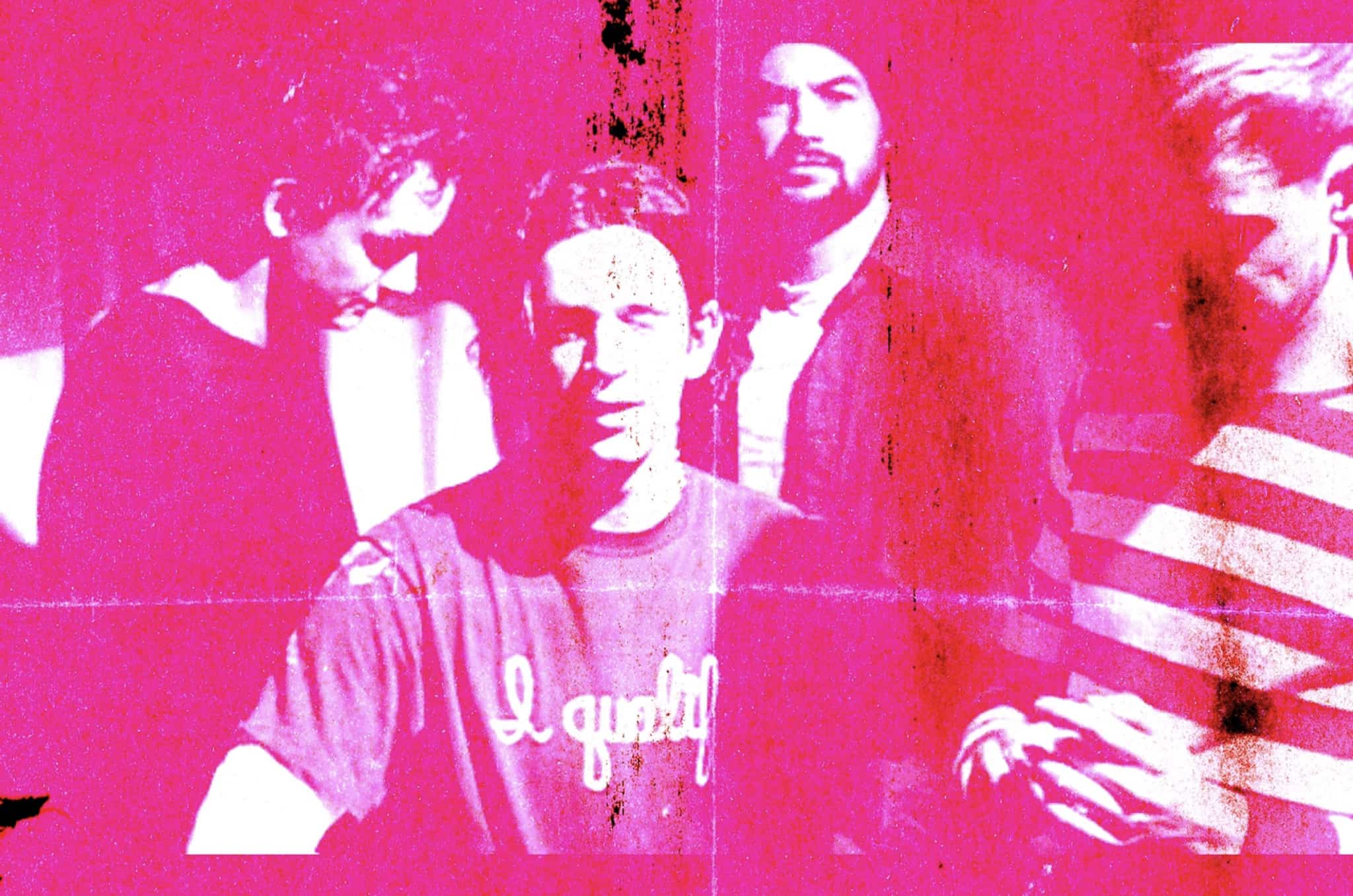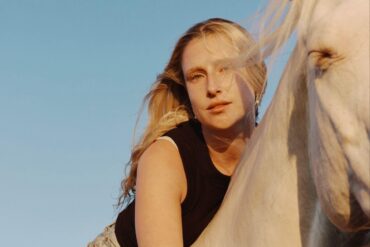Dive into Dorothy’s intimate depths as Dorothy Martin unveils the raw pain and beauty aglow at the heart of ’28 Days in the Valley.’
When life beats you up enough, you find your strength.
— —
From working in a gentlemen’s club to fronting one of today’s foremost rock bands, Dorothy Martin’s life has been a true rollercoaster – and she’s finally beginning to share her story. The leader of the band Dorothy made a strong first impression when they debuted in 2014, raising hell with infectious heavy-hitting singles “After Midnight,” “Wicked Ones,” and “Raise Hell” – all of which ended up on their 2016 debut album, ROCKISDEAD.
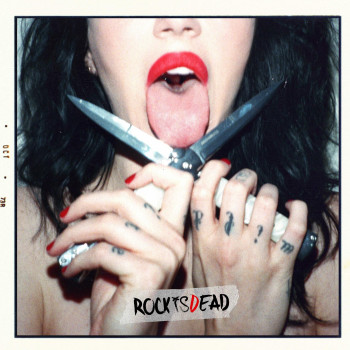
In Atwood Magazine‘s 2015 artist feature, Dorothy Martin expressed her goals of authenticity, communication, and connection: “We just started writing whatever we felt to be as true to ourselves as possible,” she said of the band’s music. And of her status as a strong, no-holds-barred female presence in the rock world? “I think a lot more girls should step up and not be afraid to be the captain of their own ship – which is something I never saw myself doing, yet here I am – and it’s just really empowering and gives me a lot of joy and hopefully inspires everyone else as well.”
Having established herself as one of rock’s freshest, fiercest voices, Martin turned inward to write and record Dorothy’s second album. Working with (former 4 Non Blondes lead singer and) producer Linda Perry, Martin unloaded herself in her music. The result is 28 Days in the Valley, a powerfully nuanced record brimming with warm “California” desert rock vibes and heavy waves of emotion.
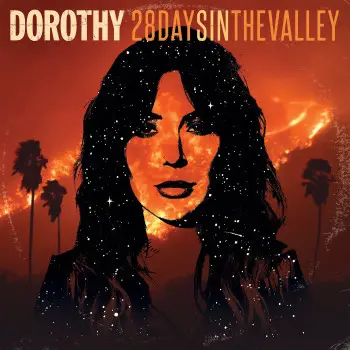
Released March 9, 2018 via Roc Nation, Dorothy’s sophomore album 28 Days in the Valley is an intense emotional evolution from the band’s blistering debut. While it’s been only two years since ROCKISDEAD‘s release, Dorothy’s music feels decades wiser – in large part due to the frontwoman’s maturity as a storyteller and tell-all openness as a songwriter. “I want to be transparent, so that fans and young people that are listening to the music don’t feel like shit about themselves when they look at me and what we have going on,” she tells Atwood Magazine. “It’s more like, ‘Well if I could do it, you can do it totally.’ I deal with issues that I think a lot of people can relate to, and I want them to see the light at the end of the tunnel.”
But it’s not always easy to see the light – as is expressed, reinforced, and reckoned with throughout 28 Days in the Valley. Dorothy inject hope and hardship into every song, opening with the vibrant self-love anthem “Flawless,” where Martin’s passionate vocals emote strength and raw strain over sunny, driving guitars – setting the scene for the album to come. While 28 Days ultimately carries a message of hope, it wrestles with massive themes ranging from drug addiction and depression, to femininity and love. The monumental “Mountain” shines with heartfelt grace, its evocative music cloaking painfully vulnerable lyrics:
I wanna make her heal
She’d try but she can’t feel
Even when we’re holding hands
in the pouring rain, yeah
I know she won’t come out
Every time she turns me down
What, I can’t make her feel safe
“The Dorothy that you guys see today is a product of just getting knocked down and standing up over and over again, and refusing to give up, really,” Martin explains. Like ROCKISDEAD, 28 Days in the Valley is the band’s natural evolution: Their logical next step, though it feels more like a seismic leap. “I don’t want our fans to ever look at me and my life, or the band, and go, ‘Wow, that person’s perfect, and they have so much going for them, and I can’t ever be that.’”
Dorothy Martin’s rollercoaster ride continues its swing of ups and downs as her band embarks on a massive set of tour dates that will extend from the summer into the fall: In addition to the third leg of their Freedom Tour and numerous festival appearances, Dorothy will open for Greta van Fleet in September. Wherever they go, they’ll be bringing the heavy emotion and spirited energy of 28 Days in the Valley with them, taking fans on an unforgettable, moving journey.
Dive into Dorothy’s depths with Atwood Magazine in our intimate interview as Dorothy Martin unveils the raw pain and beauty aglow at the heart of 28 Days in the Valley.
Listen: ’28 Days in the Valley’ – Dorothy
A CONVERSATION WITH DOROTHY
Atwood Magazine: Hey Dorothy, great to meet you!
Dorothy Martin: Hey, nice to meet you! How are you doing?
Can't complain, thanks! How about yourself?
Dorothy: I’m good! I have some downtime right now – we’re about to go out on tour again soon – and I’m just kind of, you know, tending to adult personal stuff, like paying bills and trying to sell a property – that kind of stuff; the stuff that you don’t think about when you’re on a tour bus traveling around the United States! (laughs)
I'm sure it's even hard to consider a property home if you're touring so much!
Dorothy: Oh yeah, I’m actually more comfortable on the tour bus than I am… for about, maybe two weeks, three weeks when I get home? It’s like an adjustment, you know? I lay down in my bed and I’m like, why is the bed not moving?! It’s supposed to be moving… Because we get this nice vibration from the bus engine, and it kind of puts you to sleep, it’s really nice – you get used to it! And being around my band is so much fun, they’re like family to me! So I miss them, and when we’re not [together] it’s just weird! You know? It’s definitely not a normal, very structured life, so we have to make it semi-normal, like everyone gets up in the morning and has coffee on the bus together (laughs)… It’s funny.
Well, everyone will be together again soon!
Dorothy: We’re going out with another rock band (Greta Van Fleet) – and we’re going to be coming back to the Texas area, we’re going to be on the East Coast… I think people are going to be really excited about this! Like, we’ve never toured with them before, and they wanted to bring us on as their special guests, and we just got off two legs of our headlining tour, the Freedom Tour for supporting 28 Days in the Valley… And they asked us to come out, and I’m like, “Hell yes! We love you guys!”
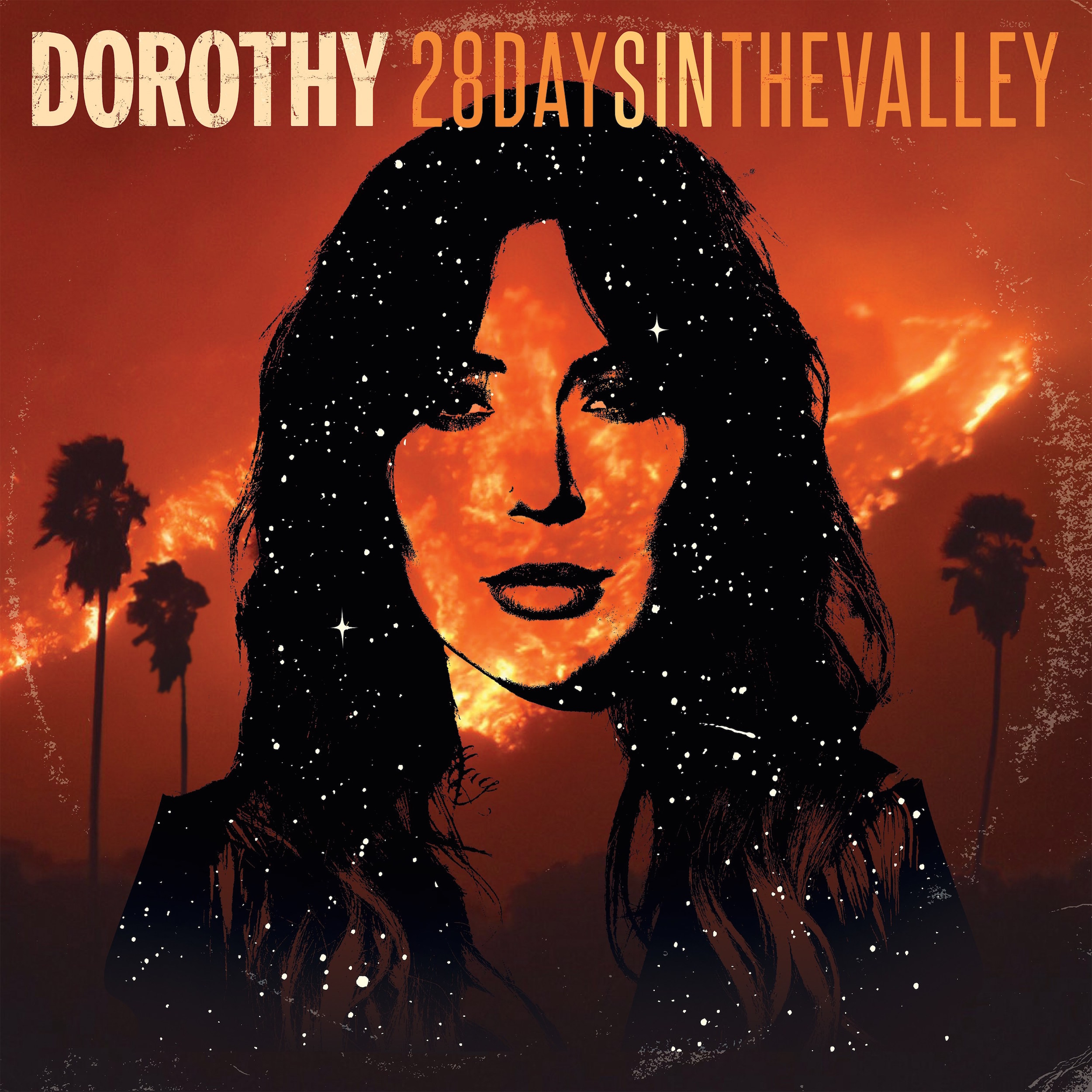
This is one album I can't wait to hear live! So, let's dive right into the record. You've previously described this as the butterfly coming out of a cocoon. Can you talk to me about the personal and external experiences that led to you making this album now?
Dorothy: Yeah, absolutely! I was involved in the songwriting in a deeper way, to where I felt like more of my voice really came out – not just trying to structure songs together that made sense… It was more about being honest and being true to myself, and I feel like we’ve barely scratched the surface to be quite honest with you! I’m such a, like – I can’t wait to write a third album, because I think that I can get really real and even a little shocking – which is nice; you don’t want to give it all away on the first record. We made a rock ‘n roll record – you know, a party record; a bar record. And then this one was more like, “Let me tell you a little bit about myself and what I’m going through.” It’s a little abstract: There are some lyrics that are quite obvious, you know, talking about drinking; there’s “Black Tar & Nicotine,” which deals with substance abuse; but the overall tone of the album is a message of hope!
Heading down the same routine
My throne is high just like a king
But black tar and nicotine
Shot me in the heart and killed my dreams
I don’t want our fans to ever look at me and my life, or the band, and go, “Wow, that person’s perfect, and they have so much going for them, and I can’t ever be that – and it makes me feel shit about myself.” I had this experience just yesterday – I looked at another artist on Instagram, and I then I was like, “I’m gonna delete Instagram ’cause this is bullshit!” because this artist was doing stuff that I was supposed to do two years ago, and I was feeling really bad about myself by seeing this, right? And I wonder, how fans and people must feel when they’re at their job or in school, and they don’t even know what they want to with themselves! I don’t want them to feel that way. I want to be as transparent as I can: I deal with a lot of issues that I think a lot of people can relate to, and I want them to see the light at the end of the tunnel.
Look, I’ll be quite honest – let’s just get this out: When I moved to L.A., I couldn’t get a job. I wasn’t hired anywhere, and I moved into an apartment with a guy – I got into a bad relationship; he ended up getting evicted, so I had nowhere to live, and a neighbor took me in and I was sleeping on her floor. So, I tried to get a normal job I ended up having to… I have a lot in common with Cardi B: I ended up having to work at a gentlemen’s club for years just to make rent – just to survive in L.A! The rent is incredibly expensive; to have a car, to get around… This is before Uber, and… just to find someone in the music industry who believed in me…
I’m not saying all of this for attention – this is a real thing! A lot of girls that go through this end up going the artist route, because they are free-spirited; they’re willing to take risks. They’re willing to maybe not fit in, and maybe be criticized and shamed for what they’re doing. But that’s what I’m saying: I want to be transparent so that fans and young people that are listening to the music don’t feel like shit about themselves when they look at me and what we have going on. It’s more like, “Well if I could do it, you can do it totally.” So I ended up having to work that job and make ends meet, and I was in a really abusive relationship – there’s just a lot of trauma and a lot of pain in my early years in Los Angeles. It got to a point where it got bad enough that I walked away from music. I didn’t want to be living the life I was living, and scraping around the way I was, to make it if I was surrounded by people that were not honest, or full of integrity – that didn’t have my best interest in mind.
I got jaded for a second and I left the industry; I moved out of L.A. I became someone’s girlfriend, I basically ran their store for them… And it just kind of all came to a head: When life beats you up enough, you find your strength. And that is, I think, more of the message of this album – and I am so grateful every day for Linda Perry, because I told her my deepest, darkest secrets that no one knows. It was such a relief for me… It was like I had been sick for a long time, and I started to realize I can get well, and dreams can come true. So when I look around and I feel bad about myself because someone else, so-and-so is shooting for whatever magazine, or getting whatever award or whatever on TV… I look at my life and go, “But they didn’t go through what I went through; they didn’t go through that stuff. Maybe I should, when I’m talking to Atwood Magazine, tell them the truth, and talk about it – so kids can be like, ‘I’m going to be OK.’“
Thank you for sharing that with me, and I'm so sorry for your pain.
Dorothy: You’re the first person I’ve told; I really elaborated on that story with you.

I was involved in the songwriting in a deeper way, to where I felt like more of my voice really came out.
Well thank you; I'm humbled. My goal is always to dive deeper, to get to know the person and the real stuff behind the music - because there is a lot, and I don't even know where to begin, quite frankly, with your new record... I'm curious, when did Dorothy finally come to exist in the way that we understand it today?
Dorothy: Well, the way I am today just started with… When I was a kid, I just wanted to be a singer. For some reason I never let go of that dream, no matter what I was going through. It seems like such a slow burn for me – you see these people that seemingly come up overnight. No; they work really hard for a long time. Yeah, there are exceptions, but the Dorothy that you guys see today is a product of just getting knocked down and standing up over and over again, and refusing to give up, really! I think that artists, when they’re true to themselves, should and will always evolve.
If you stay the same your whole life, that’s pretty boring! You want to have incredible stories to tell people; you want to inspire – I want to inspire people and make them feel joy, and make them feel like anything’s possible, and make them feel like, “Fuck yeah! I’m stoked and amped right now.” So when I started the first record, it was just like, I want to sing. I want to get a deal. I want to put together this band. We like rock’n’roll music, the producers… So it was just like, “Let’s make a rock album.” So the progression, naturally, was to get more and more organic. Who I am now, is, I think I’ve let some of my walls down, and become more organic and more honest. Who knows what the next album will bring! But I’m enjoying where we’re at right now; there is a little bit of a softer side to this record, but there’s still some bad ass!
My intention with making it that way, with Linda – we had this vision of like, “We’re in California; I’m a California girl. We want people to really love this at festivals; we want people to like, put this on their car radio when they’re driving, when they’re going on a road trip or whatever.” So our live show, we have those metal-influenced songs from the first record, and we have this second record, and we’ve managed to tie them together so it makes for a really dynamic live show – and that was my intention: Let’s give the hardcore rock fans what they want, and let’s give the kids who kind of lean towards the pop/alternative what they want, but also stay true to what we want – that was number one! So I think it worked out nicely, to be able to include everybody!
The Dorothy that you guys see today is a product of just getting knocked down and standing up over and over again, and refusing to give up, really.
Back in 2015, in a previous Atwood Magazine interview, you said I didn't really choose rock music. We just started writing whatever we felt to be as true ourselves as possible. It sounds like Dorothy has evolved naturally, but also very much intentionally, in terms of staying true to itself and yourself.
Dorothy: Rock’s a different animal. It would be easy for me to write a pop album; it would be easy for me to be alt-pop; it would be easy to do that! Rock fans, you’ve got to win them over, and then when you win them over, you have them for life. So I like a challenge! (laughs) People can tell when you’re faking it.
So 28 Days in the Valley - what does that title inspire?
Dorothy: Well the reason we called it that, is that we actually did this record so quickly, because Linda is like a firecracker. She’s like, I got shit to do. Gotta get this album done, and I’m like, me too! Like, I’ve been sitting around trying to figure out what the second album is going to be for long enough, so I’m down to burn through this and get it done quickly. It’s not that we were sloppy or rushing anything; it’s just that we set that intention out, and the universe delivered! Everybody came together, buckled down, and got this album done. So when we were recording it, it took about 28 days. We did it in the valley at Greenleaf Studios, which is her studio. And it made for a perfect title, and I’ve got to give her the credit: When she said, it I felt that sounds like a movie, and I love that title… So that’s the story behind it.
It does certainly capture a lot! One of the things about this record that I feel most potently is a certain maturity... You already talked about the emotional aspects in terms of how it's defined a little differently than the first record... I'm wondering if you've also felt that maturity and listening back now?
Dorothy: Oh definitely! I love how the band and Linda played with the sounds. We’ve got a lot of inspiration from the late ’60s, the love movement, and I love that! I grew up listening to that stuff, like I grew up listening to… My dad was a huge folk fan: He loved Joan Baez and Bob Dylan, but also rock. My first vinyl ever was Pink Floyd, Dark Side of the Moon. So it definitely does sound more mature; I was putting more thought into, “Well, here I am with a microphone. What do I want to say?” But again, I think it’s just scratching the surface. You’d be surprised how quickly the time goes, and how many songs you can write and go, I have so much more to say still. And that’s why I’m not going to stop doing this!
One of my favorite aspects of 28 Days in the Valley actually comes toward the beginning. “Mountain,” “Freedom,” and “White Butterfly” - these three songs float perfectly into each other, and I guess there's this '60s, '70s rock feeling that flows through them, and I absolutely love it! It's just this perfect coalescing of sound and urgency.
Dorothy: You’re feeling the love that we put into the music, and how much we cared and tried to get out of our own way, and allow these feelings to manifest in the songs. Like I said, when you listen to a song that uplifts you, it’s changing your vibration and it’s putting you in a better place emotionally. That’s a very powerful thing, and I hope that that’s what happens when you listen to this, because that was my intention – so if I pulled it off, let me know!
I think that “Mountain” is one of the best songs you've ever made.
Dorothy: Thank you! That song’s so personal for me. It’s basically me talking to myself when I’m in my most broken place. It’s about when you feel worthless, and you feel like if I was talking to my past self, I want to make her heal, and she tries, but she can’t I can feel. It’s about someone that’s been so broken that they’re numb. That’s why it’s one of the most personal songs, so that means a lot to me – thank you.
Meanwhile “Freedom” is kind of fun and different... The concept of freedom is very potent in this day and age. In terms of writing a song with that title, did you think about individual liberties, or was this more of an internal and personal experience?
Dorothy: Well the feeling I get from being able to tour – and I feel so grateful and lucky – is seeing the world, and that breathes life into you. I will never, ever take that for granted – so that’s kind of what I use to illustrate that feeling. That being said, I was watching Van Jones interviewing Oprah, and they’re talking about the state of the world right now… and shit’s a little crazy! Like, we have access to so much, information; we don’t know if we can trust that information; we don’t know what’s true… You kind of have to, at a certain point, start ooking inside yourself for answers, because when the world outside you seems crazy, I mean… How can you go along with that? It’ll drive you insane, and it’s hurtful to look at. So we were jamming, the band and I, and I started… rapping those verses, kind of, and I wanted to talk about that feeling of freedom – that feeling of being alive! For me it was, “How do I illustrate this? It’s my travels; it’s being grateful, and having this opportunity to do this.“
So Linda came in, and I’m like, “Where do we go for the chorus?” And she got it right away. It perfectly matched what I was trying to say, and then it just so happens that we’re in this day and age right now, where I think people need this message and more people need to stand up and fight for their rights, and demand freedom and demand what we all deserve. We’re human beings we’re born free, and we become indoctrinated with all these negative beliefs that keep us trapped in a small world, where we can’t really accomplish anything, and it’s little me versus the big world, and I don’t think that that’s true at all.
So you have to go inside and become quiet and still, and look for these answers. I want people to realize they’re so much more powerful than they know! And you see this happening: People are standing up and proving that, left and right. So I’m really proud of it, and again, really grateful.
Take me back to the West coast
Where the sun shines all day
Weaving through the heart of Los Angeles
To the San Francisco bay
Take me down to the south land
Oh I need that humid air
I put two feet through the old church door
Holy water on through my hair
Take me up to the North side
Let me sleep under the pines
Where the starlight falls upon my face
And the redwoods whisper lies
Let’s go on over to the east coast
‘Cause the boys know how to dress
Gotta dime bag in their pocket
They don’t care if I’m a mess
I want people to realize they’re so much more powerful than they know
At the end of “Freedom,” there's a chord that flows right into “White Butterfly.” Is it purposeful that the song following “Freedom” is a song asking for saving?
Dorothy: Well no, not at first; at first, we were just focused on writing the songs. But… all of these fit together in a story which makes the album. After we were done writing like, fifteen songs, we were going to do ten, but I wanted more: I wanted more song on this record for people, because there’s so many good ones that match each other and fit together. It’s one body of work, so it just so happened that we got to do thirteen, plus there’s “Girls and Boys” which is exclusive to the vinyl, and I love that song!
So when they were organizing the songs, that was a production thing… The engineer and Linda sat down and decided what the flow was, so it was probably not done on purpose, but they placed them where they’re meant to be.
Side one ends somewhere with “White Butterfly” and “28 Days in the Valley,” and then side two begins and “On My Knees” hits you in the face!
Dorothy: I love that song, thank you! That one’s fun!
I want to talk about that song, because the lyrical prowess is just incredible. I want to talk about the sexuality that you embrace there, because that's something that you don't see, especially in rock music. This story about somebody embracing love, and wanting to give love, and have fun with it, doesn't get told.
Dorothy: I give Linda all the credit for the lyrics: She had this idea, and I loved the vibe for this song! We worked on the bridge together, because she had sent me a demo. I just loved the vibe – it’s different from everything on the record in its own way, but it still fits! The lyrics are very sexually forward; they’re very much flirtatious, like I’m taking the reigns; I’m going to be the dominant one here, and I’m going to take the reigns and be aggressive a little bit. I think it’s fun when a girl does that, because socially we’ve been kind of programmed to think that the man is supposed to do all that! Or the male energy in the relationship, whatever that is, is supposed to be the one doing that. But it’s ok for the feminine and the woman to be like, I’m the shit and you’re going to like me, so stop playing games!
Am I too emotional? Am I too fucking emotional for you?
Dorothy: I see you baby… It’s basically telling him, “Don’t be a little baby! I’ve got it,” you know?
I see you baby, shaking my ass - that line is so striking in a very good, powerful way.
Dorothy: I was in the vocal booth, and we were getting to that part, and for some reason that just popped into my head and I remember hearing that song back in the day, and it just had to go here! It just made sense!
That's incredible! So on both “On My Knees” and “Black Tar & Nicotine,” and really across the entire record, you've really matured as a storyteller, and in your ability to dive deeper into an experience, and bring that to the surface for us. I'm curious to hear about your intent, in terms of these stories; what you want people to hear through them, and feel through them.
Dorothy: It’s what I said in the beginning: I want them to feel uplifted; I want them to feel hopeful and inspired, also like, “Fuck yeah.” I want them to get that fuck yeah, you know? That jolt of freedom, adrenaline, and inspiration. Linda has this amazing knack for creating a safe space for an artist to be themselves. She’s good at reading you; she’s good at reading your energy. I can walk into a room and be feeling lonely and not necessarily be showing it, and she’ll be like, “What’s up, kid? Are you lonely?” So she knows; like, she’s on another level spiritually, energetically… everything! She created this safe space, and there was a lot more honesty that came out of that. I felt a little more accepted for who I am, and a little more able to tread out into the water and swim with the sharks a little bit!
What I hope for is that I do create this space for fans to come to the shows, and express love to us and to one another, and to come together and be one, and be in this place of joy and good energy. I want them to come to the show and leave going, “That was amazing! That was one of the best nights of my life!
What's your favorite song on the record?
Dorothy: “On My Knees” is pretty up there.. it’s hard to choose! I like the message in “We Are STAARS.” I really like singing “On My Knees”… It’s hard to choose; they’re all my little babies.
I completely understand. Why do you end it with, “We Need Love?”
Dorothy: I think that’s the overall message, and it was like the stamp at the end – the signature, the painter signing the painting, so-to-speak.
I feel like you're really taking complete control of your artistic identity now. Congratulations Dorothy, and thank you - I really appreciate your taking the time to have what I feel has been a really special conversation!
Dorothy: Thank you! It was for me too.
The Dorothy that you guys see today is a product of just getting knocked down and standing up over and over again, and refusing to give up, really.
— —
:: stream/purchase 28 Days in the Valley here ::
— — — —
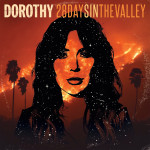
Connect to Dorothy on
Facebook, Twitter, Instagram
Discover new music on Atwood Magazine
? © 2018

